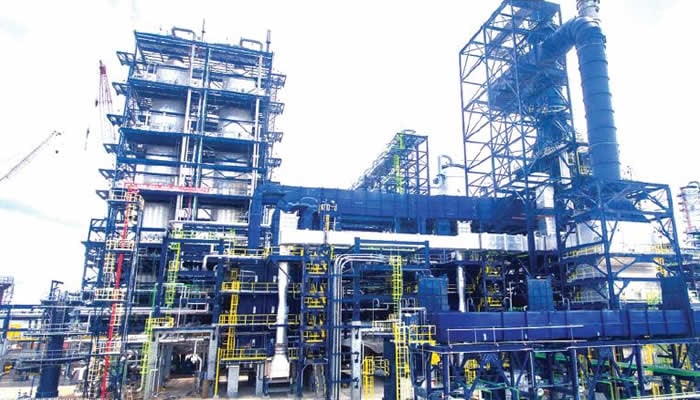The launch of Dangote Refinery’s direct fuel distribution scheme has sent ripples through Nigeria’s fuel supply chain, disrupting established business relationships and sparking concerns among transport owners. The refinery’s offer of free fuel delivery to filling stations, telecom companies, and other bulk users has prompted these consumers to abandon their existing contracts with middlemen suppliers, particularly members of the National Association of Road Transport Owners (NARTO). This shift has left NARTO members, who have invested heavily in trucks and infrastructure based on these contracts, facing significant financial challenges. The free delivery model undermines their business model, rendering their services redundant and threatening their ability to repay loans taken to acquire their fleet of approximately 30,000 trucks. While the affected companies haven’t formally terminated their contracts with NARTO, the allure of free delivery from Dangote has effectively rendered these agreements obsolete.
NARTO has expressed its concerns to the Federal Government, particularly the Nigerian Midstream and Downstream Petroleum Regulatory Authority (NMDPRA), arguing that Dangote’s direct distribution practices violate Section 212 of the Petroleum Industry Act (PIA). They contend that such practices disrupt the established market structure and threaten the livelihoods of thousands of transport owners. While appealing to Dangote to consider the survival of other players in the sector, NARTO has also emphasized their desire for the refinery’s success, recognizing its potential benefits to the Nigerian economy. However, they seek a balanced approach that protects existing businesses while facilitating the refinery’s operations. This appeal signals a willingness to negotiate and find a solution that benefits all stakeholders.
Initially, NARTO’s president, Yusuf Othman, publicly condemned the free delivery scheme and voiced the concerns of his members. However, he later refrained from further public comment, indicating a move towards negotiations and a potential ceasefire. This suggests a shift from public confrontation to a more conciliatory approach, seeking a mutually acceptable solution through dialogue and compromise. This development highlights the delicate balance between promoting competition and protecting existing businesses within the fuel distribution sector.
Before Dangote’s disruptive entry, the fuel distribution landscape involved middlemen who purchased fuel from refineries or depot owners and subsequently resold it to bulk users. These intermediaries played a crucial role in the supply chain, facilitating the movement of fuel across the country. Dangote’s direct-to-consumer model has effectively eliminated this middleman layer, offering cost savings to bulk buyers but displacing the established intermediaries. This disruption underscores the transformative impact of Dangote’s strategy on the existing market structure.
Dangote Refinery’s ambitious logistics-free distribution scheme, launched with a fleet of over 1,000 CNG-powered trucks, aims to cover major regions of Nigeria, including Lagos, Ogun, Ondo, Oyo, Osun, Ekiti, Edo, Delta, Rivers, Kwara, and Abuja. This extensive reach directly connects the refinery with end-users, bypassing the traditional distribution network. The scheme’s initial rollout focuses on the Federal Capital Territory and several key states, with plans for nationwide expansion as more trucks become available. This strategic approach demonstrates Dangote’s commitment to streamlining fuel distribution and expanding its market share.
Coupled with the free delivery, Dangote Refinery has introduced a price reduction strategy, offering fuel at N841 per litre in Lagos and other South-Western states, and N851 per litre in Abuja, Rivers, Delta, Edo, and Kwara states. This competitive pricing further incentivizes bulk buyers to switch to Dangote’s direct supply, reinforcing the disruption of the existing market dynamics. The combination of free delivery and lower prices presents a compelling proposition for consumers, putting pressure on traditional players to adapt or risk being marginalized.
The impact of Dangote’s strategy has been swift and significant. Independent Petroleum Marketers Association of Nigeria (IPMAN) has confirmed that Dangote’s CNG-powered trucks have begun delivering fuel to their stations at no cost, marking a substantial shift in the distribution landscape. IPMAN members have expressed satisfaction with this development, acknowledging the benefits of lower costs and streamlined logistics. This positive reception from marketers further solidifies Dangote’s position within the market and underscores the potential for long-term disruption of traditional distribution models. IPMAN has also confirmed the anticipated price reduction, with fuel prices expected to drop from N865 to N841 per litre under the new arrangement. This price decrease further strengthens Dangote’s competitive advantage and reinforces its appeal to consumers. The confluence of free delivery, competitive pricing, and positive reception from marketers positions Dangote Refinery as a major force in the Nigerian fuel market, poised to reshape the industry landscape.


